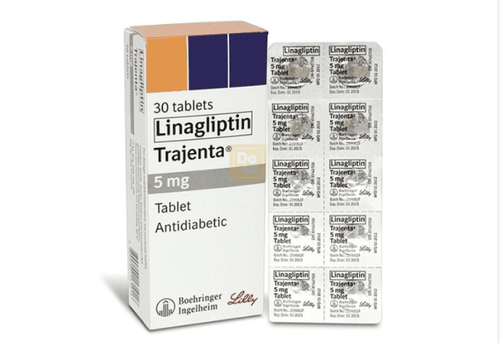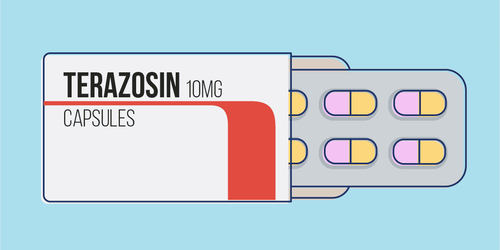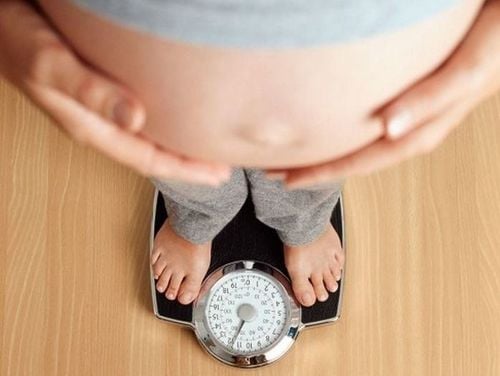This is an automatically translated article.
During pregnancy, your doctor will monitor the size of your unborn baby. Growth is a good indicator of a baby's health and well-being, but sometimes babies grow more than expected. Therefore, too large a fetus can predict a high-risk pregnancy. In other words, giving birth to a baby that is too large can affect labor as well as the health and recovery of mother and baby during the perinatal period.1. Definition of too large pregnancy
The average newborn weighs about 3200 grams to 3400 grams. Most full-term babies will have a birth weight that ranges from 2600 grams to 3800 grams.A baby is said to be too large when the birth weight is above the 90th percentile or above 4000 g. In fact, about 3 to 15% of babies are born with a weight above this value.
The chances of having a baby that are too big become many times more difficult with trauma for both mother and baby increasing with the weight of the baby. Specifically, the likelihood of complications is higher when the baby is over 4500g and the risk is highest when the baby weighs over 5000g. Therefore, routine antenatal care in general, and good management of a large pregnancy can help to cope with and prevent any complications that may arise from the pregnancy up to the time of labor.
2. Causes of too large pregnancy
Many factors can affect the size of the fetus in the uterus. Sometimes doctors don't know what causes an abnormally large baby. However, a parent's weight, health, and genetics can all play an important part.The causes of too large pregnancy have been identified as follows:
High blood sugar: A woman is more likely to have a large baby if she had diabetes before pregnancy or had gestational diabetes while pregnant. pregnant. Have had a big baby before. If you have had a large baby, your chances of having another large baby will be higher. Being overweight before pregnancy. Women are more likely to have a larger-than-normal baby if they were overweight or obese before becoming pregnant. Excessive weight gain during pregnancy. What you eat during pregnancy and how much a mother gains weight can greatly affect her baby's birth weight. Been pregnant many times. That's not always the case, but in general, the more babies you have, the bigger the babies tend to get. Pregnant with a baby boy. Boys are usually slightly heavier than girls, and larger babies are usually boys. Race: This factor affects not only the size of the baby during infancy but also the size of the child as he grows up. White and Hispanic mothers tend to have larger children than mothers of other backgrounds. Long term pregnancy: Newborns continue to gain weight and grow while in the womb. So, the longer the pregnancy lasts beyond 40 weeks, the bigger the baby will be. Advanced maternal age: Women are more likely to have a large baby if they are over 35 years old. Consuming too many processed carbohydrates. Studies have shown that eating foods with a high carbohydrate content can cause the fetus to overgrow, the mother to gain weight, and to be prone to metabolic diseases during pregnancy such as gestational diabetes.
3. Symptoms and how to diagnose a large baby
There is no way to know your baby's true weight while still in pregnancy. Therefore, it is not possible to accurately diagnose a large baby until the baby is born and placed on the scale.Although doctors cannot measure accurately, they can still estimate the size of the fetus. Specifically, the doctor will determine the approximate size and weight of the baby by:
Consider the mother's risk factors: The doctor will consider the family history, health history, history of pregnancy pregnancy, current health, weight and mother's diet to find out if there may be a risk of having a large baby. Measure the height of the uterus: If a woman's belly is larger than expected according to each gestational age, the possibility of having a large baby is suspected at the end of pregnancy. Feeling the abdomen: The doctor or midwife will move her hand along the woman's abdomen to feel the size and position of the baby empirically. Monitor your weight: Your doctor will monitor your weight gain as well as your diet. Obesity and excessive weight gain during pregnancy can lead to large babies. Ultrasound assessment: An ultrasound can measure the size of a baby's head, around the abdomen, and the length of the femur in the lower leg to predict the baby's weight. Amniotic fluid test: Having a lot of amniotic fluid is called polyhydramnios and is linked to the possibility of having a large baby.
4. How to prevent the possibility of having a large baby
It is not always possible for women to prevent large babies from having a large baby despite taking preventive measures. However, because there can be complications when the pregnancy is too large, the doctor will monitor the mother's condition, pregnancy, and possible risk factors to help ensure a safe pregnancy and a smooth delivery. Beneficial for the healthiest mother and baby possible.Thus, to prevent complications from a large pregnancy, doctors will:
Monitor the growth of the uterus by measuring the height of the uterus at each visit. Monitor weight gain. Monitor fetal growth through measurements and ultrasound. Blood tests and other prenatal tests to check if you have any health problems. Screening for gestational diabetes. Manage and control diabetes well if you have it. Control the index of weight gain or obesity. On the part of the mother, the following will help control the baby's weight in the best way:
Prepare well for pregnancy by seeing a doctor for pre-pregnancy advice. Ensure a healthy body weight before getting pregnant. Full periodic antenatal check-up and testing as required. Gain weight in a controlled manner. Apply a balanced and scientific diet. Do exercise. Visit a nutritionist, an endocrinologist if necessary.
5. Possible complications when giving birth to a large baby
In general, complications from having a large baby are rare if well managed. However, the chance of having problems with a large baby increases when the baby weighs more than 4500 grams and is even higher if the baby is over 5000 grams. When the baby is too large, the baby is more likely to have a difficult delivery and birth trauma.The risks of giving birth too big for the fetus:
Difficult labor: The fetus can get through the birth canal with difficulty and even get stuck. Birth trauma: Your doctor may need to use birth control devices such as forceps or a vacuum cleaner, which can cause injury to your baby's head. In addition, children can also experience injuries such as shoulder dislocation, brachial plexus injury, broken collarbone or broken arm. Neonatal Hypoglycemia: Babies who are larger than normal are more likely to have low blood sugar after birth. Respiratory distress: Babies can develop respiratory distress from difficult delivery, prolonged labor, or aspiration of meconium. Prolonged hospital stay: Your baby may need special care after birth. Childhood obesity: Higher birth weight is associated with higher birth weight later in life as well as associated health problems. The risks of having a baby too big for women:
Prolonged labor. Injury to the perineum during childbirth such as tearing or needing an episiotomy or pain in the tailbone. Emergency cesarean section and associated risks. Uterine rupture. Postpartum haemorrhage. Prolonged damage to urogenital function. In short, it's normal to worry about your baby's size as your due date approaches. Accordingly, the possibility of giving birth to a baby that is too big will be a matter of careful preparation. Pregnancy information, good care and follow-up will reduce the risk for most large pregnancies. However, it is best for pregnant women to fully control risk factors, ensure a safe pregnancy as well as their own health in the postpartum period.
At Vinmec International General Hospital, there is a package maternity service as a solution to help pregnant women feel secure because of the companionship of the medical team throughout the pregnancy. When choosing Maternity Package, pregnant women can:
The pregnancy process is monitored by a team of highly qualified doctors Regular check-ups, early detection of abnormalities The package pregnancy helps to facilitate convenient for the birthing process Newborns get comprehensive care Reference source: whattoexpect.com; parents.com; babycenter.com; bounty.com.
Please dial HOTLINE for more information or register for an appointment HERE. Download MyVinmec app to make appointments faster and to manage your bookings easily.













